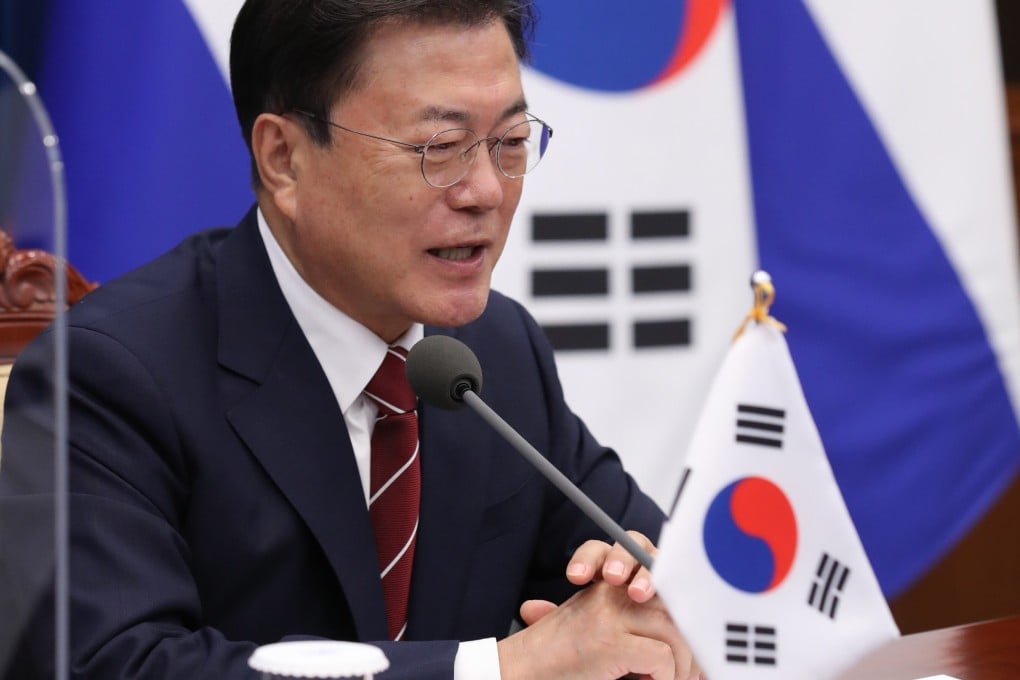In South Korea, is Moon’s proposed fake news law a real worry for press freedom?
- The new legislation, which is set to be passed this month, will include a five-fold increase in compensation rates for media outlets falling foul of it
- Critics have pointed to the dangers and difficulties of defining fake news – and President Moon is again facing accusations of trying to stifle criticism

But Moon, a former human rights lawyer, now faces questions about his own commitment to press freedom as his centre-left Democratic Party pushes controversial legislation to combat so-called fake news.
Under the proposals, media outlets would not only be required to issue corrections for the “deliberate” or “grossly negligent” dissemination of false information – they would be liable for punitive damages, with compensation rates increasing five-fold under the country’s press arbitration system.
The Democratic Party, which commands a majority in the 300-seat National Assembly, plans to pass the reforms before the end of the month. Moon’s allies have denied any intention to suppress criticism of the government, with party chairman Song Young-gil last month arguing “opposition parties or any ordinary person can be a victim”.
Many of the country’s biggest media organisations and lobby groups, including the Journalists Association of Korea and the National Union of Media Workers, have reacted to the proposed law with alarm, pointing to the difficulties and dangers of trying to define fake news.